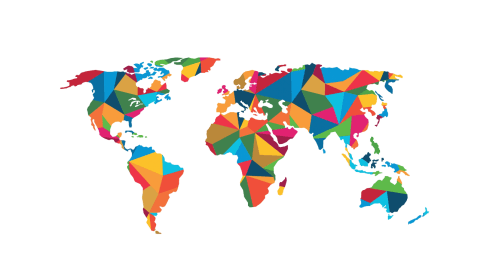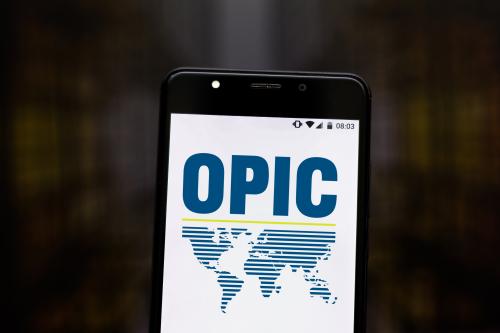President Bush says he is considering spending the “political capital” he accumulated in winning the recent election to push through reform of Social Security and simplification of the tax system. As he prepares his agenda to present to the new Congress next month, the president might also consider using some of his popularity and political power to help reduce global poverty.
This would not only be an important humanitarian gesture, it would also be in America’s interest. By making a commitment to help reduce global poverty, the United States could do well by doing good.
Three billion people—half the world’s population—survive on $2 a day or less, according to the World Bank. In addition to lacking adequate nutrition, many of them have no access to essential health services, basic education, social justice, decent housing or work opportunities. More than 50 countries are actually poorer today than they were a decade ago.
A recent United Nations report showed that 5 million children die from hunger every year. The report also said the number of chronically hungry people worldwide increased by 18 million, to roughly 852 million—the first time in nine years that the estimated number of hungry people has increased.
The United States has the resources and the technology to combat this scourge. If President Bush launched a serious campaign to do so, it would benefit the United States in a number of ways:
- It would improve America’s image in the world. People in other countries would see a kinder, gentler America, and this in turn would generate political good will in the international community and more support for other American policies.
- Countries mired in poverty provide breeding grounds for instability, crime, drug cartels, and terrorism. Living in poverty, the people in these countries lose hope and vent their anger and frustration through fanaticism. Sudan, Afghanistan, Haiti, Somalia and so many other violent and unstable countries demonstrate the wider effects of poverty. By helping to reduce poverty in such places, the United States would defuse powder kegs and make the world a safer place.
- It would also be in America’s economic interest to ease global poverty. Stronger economies around the world create more affluent trading partners and customers for American goods. Look at the long-term economic benefits the United States reaped by helping to reconstruct a devastated Europe and a crushed Japan after World War II.
More than 40 international leaders from the public, private and nonprofit sectors met recently to discuss America’s role in the fight against global poverty and to develop a strategy for U.S. involvement. The gathering, jointly convened by the Brookings Institution, the Aspen Institute and Realizing Rights: The Ethical Globalization Initiative, was called the Blum Roundtable, after Richard C. Blum, a San Francisco investment banker with a strong commitment to reducing global poverty, who was a central figure in organizing the conference.
From bankers to diplomats, from community organizers to legislators, my fellow conferees believe that most Americans recognize a moral obligation to address problems of pandemic disease, inadequate shelter and widespread famine in the poorest nations.
At the Blum Roundtable, the fundamental moral case for fighting global poverty and the sober national security and economic arguments for doing so came together, making a compelling argument that President Bush should add this issue to his second-term agenda. He should spend some of that “political capital” to fight global poverty.
It will require bipartisan action as well as presidential leadership. After all, there is no Congressional constituency clamoring for international poverty reduction, no designated advocate on the White House staff. With so many competing strategic objectives, international development assistance is at a disadvantage in the budgeting process. The recent decision by Congress to cut $2 billion from the President’s foreign aid budget—much of it from the highly-touted Millennium Challenge Account—was a shortsighted step in the wrong direction and a strategic mistake.
At the Blum Roundtable, the most insightful comment about the decision President Bush faces in deciding how big an effort to make in reducing global poverty came from former United Nations High Commissioner for Human Rights, Mary Robinson. She said the challenge for the United States is how to deal with the global perception of our commitment. “It’s as stark as that,” she declared. “Do we really care enough to address global poverty? Because, if we care enough, we can.”


Commentary
Op-edFighting World Poverty a Worthy Second-term Goal
December 19, 2004